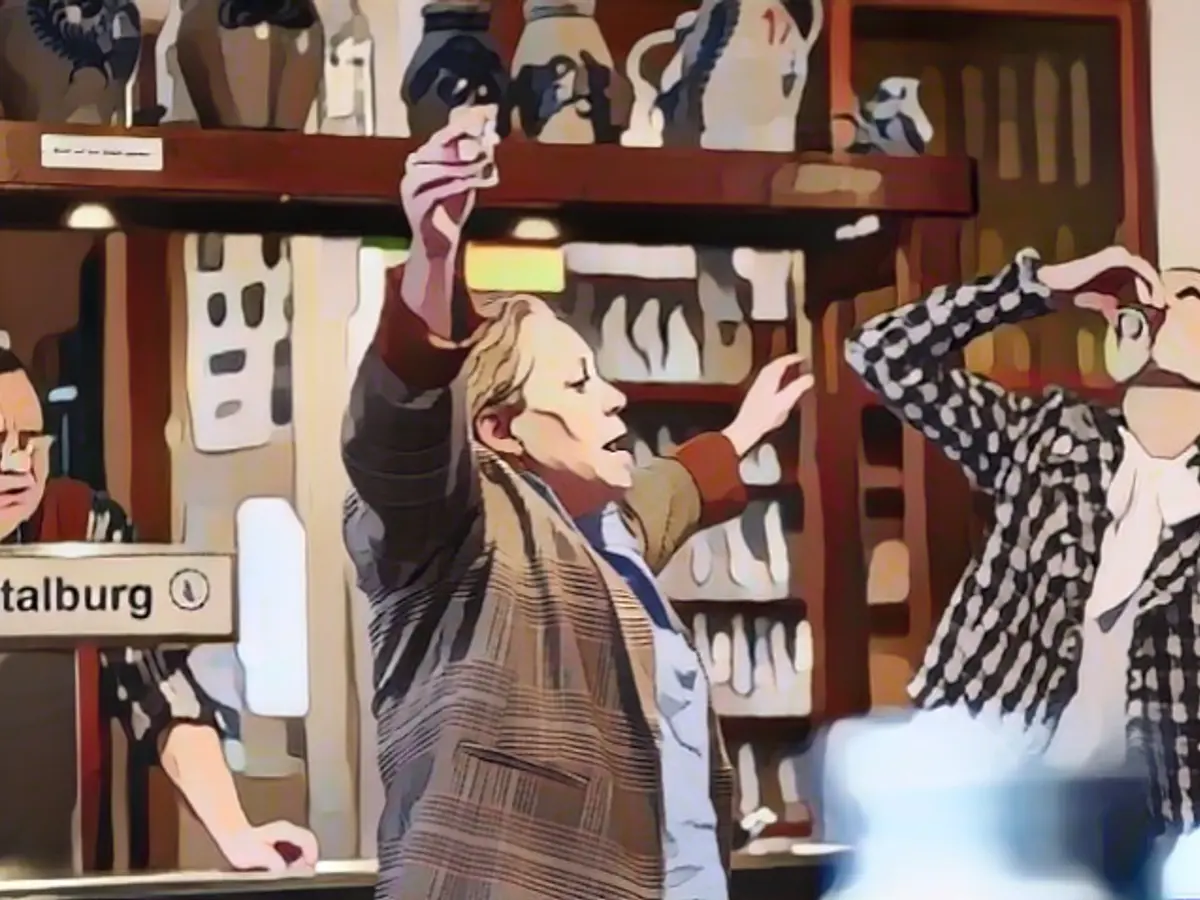Frankfurt - This legendary spot was renowned for its uniquely German, homemade Ebbelwei, engaging conversations at the local hangout, and its staff who were as unconventional as many of its patrons: the apple wine tavern "Zur Stalburg" - a Frankfurt icon. But its time has come to an end. The historic watering hole in Nordend will shut down on New Year's Eve.
The light blue house - originally constructed as a moated castle in the 15th century on the crossroads of today's Glauburgstrasse and Humboldtstrasse - was once owned by the patrician Stalburg family until 1812. Then, it passed to Amschel Meyer von Rothschild and later to the Internationale Baubank. The moat, bridge, and courtyard were demolished, and the restaurant opened in 1879. Surviving two world wars, this tavern seemed to be an indestructible monument. However, corona, inflation, gastronomic realignment, and the impending increase in VAT for the restaurant trade have dealt it a fatal blow.**
After over a century of family business, "die Burg" was sold during the pandemic to a financial investor who remained anonymous. Even though the valuable real estate is worth millions as building land, he reportedly promised to preserve the building and restaurant while investing in a new cold room and a larger kitchen.**

And it transformed: aside from traditional tavern fare - ribs, sauerkraut, cheese balls, and musical evenings accompanied by sausages - it offered more sophisticated dishes in organic quality like pumpkin and goat cheese patties with caramelized walnuts and salad for 13.60 euros, three types of dumplings (beet, spinach, and cheese) with three sauces and salad, boeuf bourguignon with braised vegetables and potatoes, and venison goulash with red cabbage and potato dumplings for 24.80 euros. The food wasn't exorbitantly priced, and the enthusiastic audience appreciated the menu changes. But the overhaul came with its fair share of losses, partly due to staff expenses required for self-service in the garden and a revamped kitchen.

Staff bore the brunt of financial struggles: Since late summer, employees no longer received complimentary food or even the same mineral water as guests, and eventually, they were let go by a lawyer. An ex-employee on Social Media shared this insightful comment: "Wage cuts, dismissals via email, missing employment contracts, no employee water during work - it all occurred in the shadows!"**
A bleak future for Stalburg Theater
The Stalburg Theater, operating in the former dance hall since 1998 and run by an association, remains unaffected by the closure. However, it too faces financial struggles and has relied on donations to make ends meet. It has been hosting the annual "open-air festival" Stoffel for years to raise much-needed funds.**
- Despite the closure of "Zur Stalburg," the historic tavern in Frankfurt's Nordend-West will be missed for its Ebbelwei and unconventional staff.
- The anticipated increase in VAT for the restaurant trade in Frankfurt proved detrimental to the survival of "Zur Stalburg."
- The introduction of organic food options at "Zur Stalburg" not only attracted a new market but also retained the loyal regulars even as they shifted their drinking habits.
- The financial investor who purchased "Zur Stalburg" during the pandemic promised to preserve the building and invest in new facilities such as a cold room and kitchen, yet the investment inevitably led to financial losses.
- Originally built as a moated castle in the 15th century, "Zur Stalburg" underwent a significant transformation into a restaurant in 1879, a change that eventually drew customers despite the loss of historic details.**
- Adaptations to the concept at "Zur Stalburg" generated financial losses and required additional staff resources, exacerbating the financial strain compromising the establishment's profitability.
- In the world of Frankfurt regional news, it was reported that employees were dismissed via lawyer's letters due to financial difficulties, wages cuts, and missing employment contracts.
- Over a century of family ownership, two world wars, and a resilient loyal customer base couldn't save "Zur Stalburg" from the inevitable demise brought on by the turbulent economy and regulatory changes.
Due to lack of space, enrichment data will be included as footnotes.*
- Economic Pressures: Competition, rising operational costs, and low profit margins can be a major challenge for restaurants.
- Increased VAT for the Restaurant Trade: An increase in Value-Added Tax (VAT) can impact profitability, as businesses must pay more in taxes on their sales.
- Regulatory Changes: Changes in local regulations or health and safety standards can increase costs and make it difficult for businesses to remain profitable.
- Market Trends and Consumer Behavior: Shifts in consumer preferences or market trends may affect a restaurant's clientele and revenue.
- Competition from Other Establishments: The presence of other restaurants or bars in the area offering similar dining experiences can impact customer flow and revenue.
- Personal or Financial Factors: Personal or financial issues faced by the owners can affect a business's viability, potentially leading to closure.




